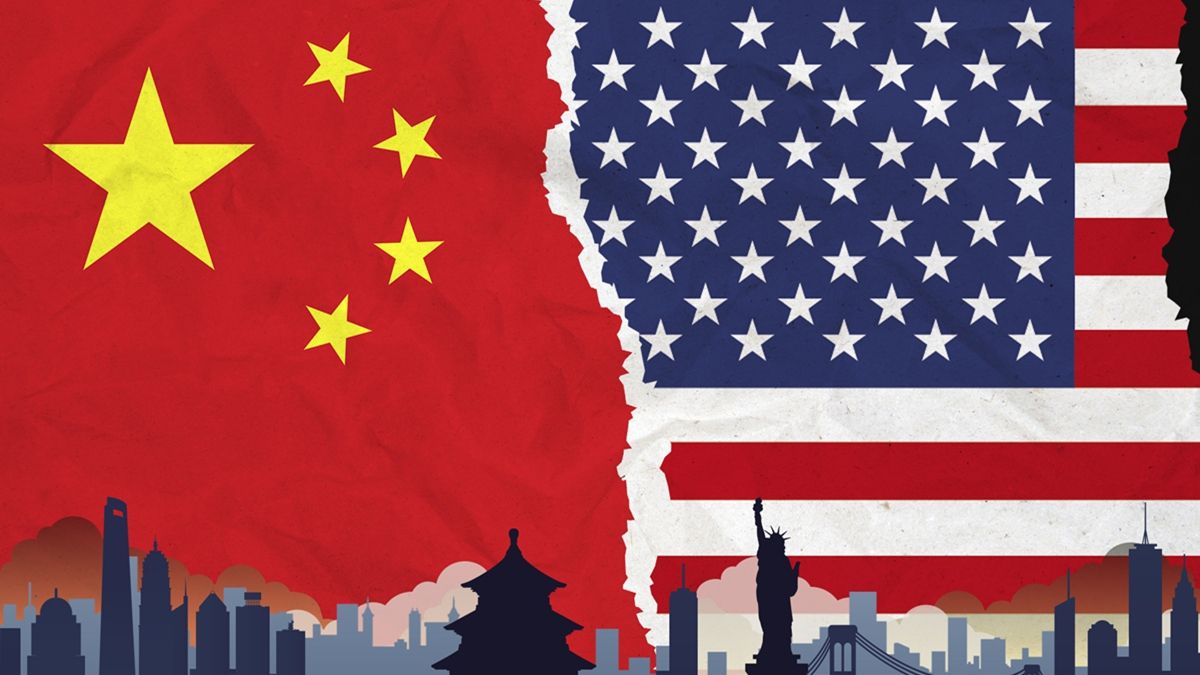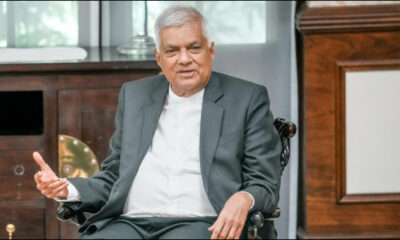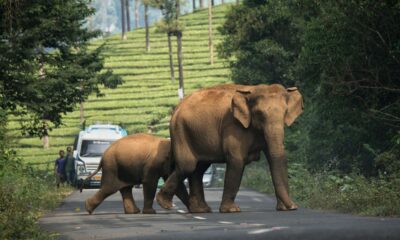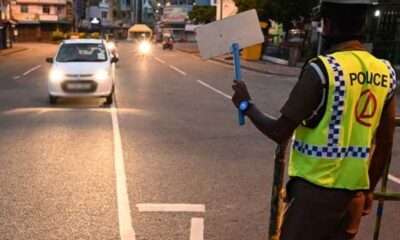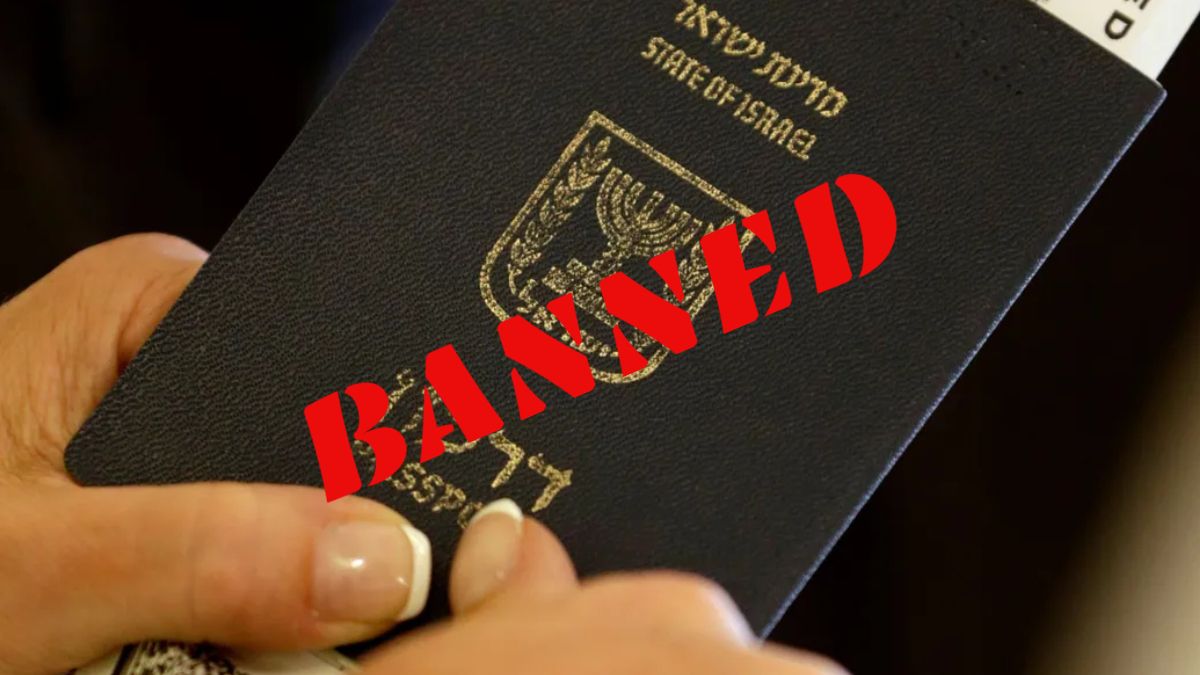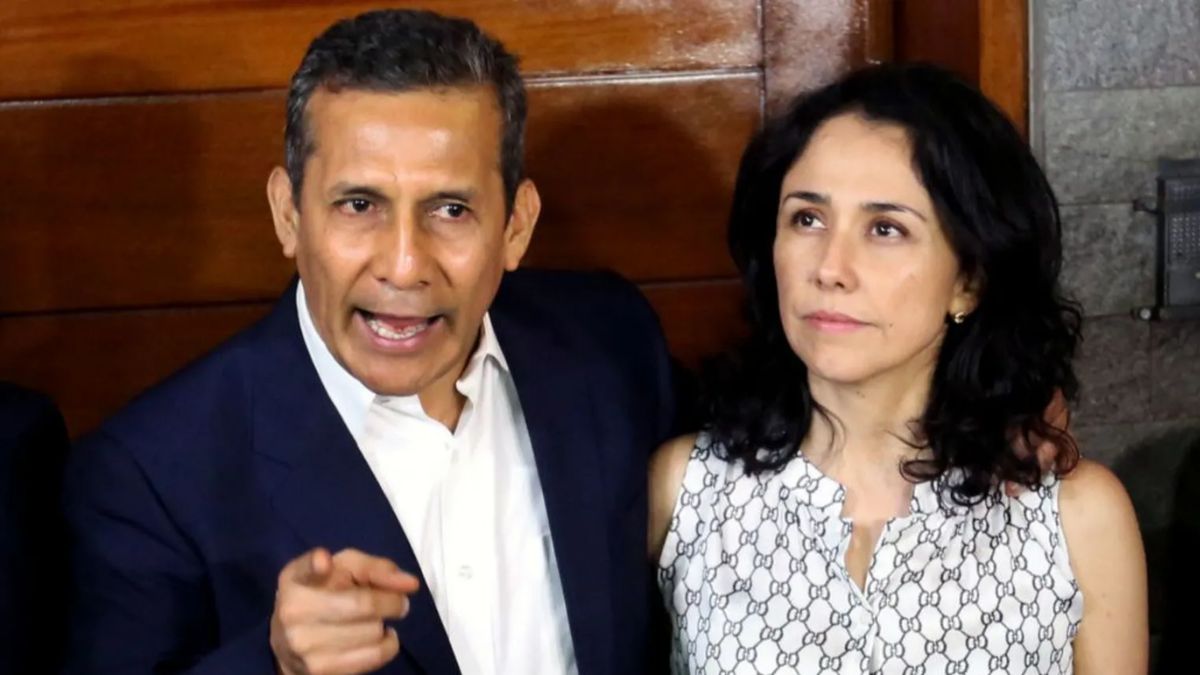President Donald Trump is set to impose an astounding 104% in levies across all Chinese imports on Wednesday, White House Press Secretary Karoline Leavitt announced on Tuesday. This comes on top of Chinese tariffs that were in place prior to Trump’s second term.
China was already set to see tariffs increase by 34% on Wednesday as part of Trump’s “reciprocal” tariffs package. But the president tacked on another 50% after Beijing didn’t back off on its promise to impose 34% retaliatory tariffs on US goods by noon Tuesday, adding an additional 84% in duties.
Earlier Tuesday, China’s Commerce Ministry said it “firmly opposes” the additional 50% tariffs on Chinese imports, calling it “a mistake upon a mistake.” The ministry vowed to escalate its retaliation on US exports.
US stocks, which soared Tuesday morning, began moving lower following Leavitt’s comments. Markets ultimately ended the day markedly lower. The Dow fell 320 points, or 0.84%. The broader S&P 500 fell 1.57%. The tech-heavy Nasdaq Composite slid 2.15%.
“Countries like China, who have chosen to retaliate and try to double down on their mistreatment of American workers, are making a mistake,” Leavitt told reporters on Tuesday. “President Trump has a spine of steel, and he will not break.”
“The Chinese want to make a deal, they just don’t know how to do it,” she added. She declined to share what, if any, terms Trump would consider to lower tariffs on China.
Asian markets largely tracked Wall Street’s losses, with Japan’s Nikkei 225 opening about 3% lower on Wednesday. Hong Kong’s Hang Seng also fell 3%. South Korea’s Kopsi and Australia’s benchmark ASX 200 index were each down about 1%.
Along with increasing China’s overall tariff rate, President Trump also signed an executive order Tuesday night tripling tariffs on goods worth less than $800 from the country. As it stands, packages under $800 have been exempt from tariffs through the so-called “de minimus” exemption.
Initially, those goods were set to face tariffs of 30% come May 2. But Trump’s latest executive order hiked the rates to 90%. This will impact Americans who order from sites like Shein, Temu and AliExpress, likely leading to higher prices of the goods.
In February, Trump had initially imposed a 10% tariff on all Chinese goods, with no exceptions, tying it to the country’s alleged role in aiding illegal immigration and getting fentanyl into the US. Last month, he doubled those rates.
China was America’s second largest source of imports last year, shipping a total of $439 billion worth of goods to the US, while the US exported $144 billion worth of goods to China. The mutual tariffs threaten to hurt domestic industries and are poised to result in layoffs.
When Trump’s first term ended, the US charged an average tariff rate of 19.3% on Chinese goods, according to a Peterson Institute for International Economic analysis. The Biden administration kept most of Trump’s tariffs in place while also adding additional ones, bringing the average rate to 20.8%.
Come Wednesday, the total average tariff on Chinese exports to the US will soar to nearly 125%.
Potential countermeasures
China’s state media and social media users have struck a defiant tone to Trump’s threat of additional tariffs. Two influential commentators with links to Beijing shared an identical list of possible countermeasures China could hit back with, citing unnamed sources.
The potential measures include significantly increasing tariffs on US agricultural products such as soybeans and sorghum, banning the import of US poultry, suspending cooperation on fentanyl, limiting market access for services such as legal consultancies, further restricting or banning outright the import of US films and investigating how much American companies earned from their intellectual property in China.
“China does not provoke trouble, but it is not afraid of it either,” wrote Liu Hong, a senior editor at China’s official state news agency Xinhua, who shared the list on his social media account.
The set of measures were also shared by a separate account run by Ren Yi, the Harvard University-educated grandson of the late senior Communist Party official Ren Zhongyi.
While previous rounds of Chinese tariffs caused more American businesses to look to other foreign countries like Mexico and Vietnam to manufacture goods, China remained the top foreign source of many items.
That includes, among others, toys, communication equipment such as smartphones, computers and a wide range of other consumer electronics. All these goods are likely to cost US consumers substantially more soon.
Dozens of other countries as well as the European Union also face a midnight deadline for new tariff rates. Those rates, which Trump laid out last week, range from 11% to 50%.
Leavitt told reporters that despite several conversations with world leaders aiming to negotiate lower tariff rates, Trump has little appetite to delay his plans.
Having spoken with Trump earlier on Tuesday, Leavitt said, “He expects that these tariffs are going to go into effect.”
At the same time, she said Trump instructed his trade team to make “tailor-made” deals with countries that want to negotiate. Pressed further on whether the president had any timeline or deadline for the trade deals, Leavitt again reiterated that they won’t be “off-the-rack deals.”
(CNN)

 News3 days ago
News3 days ago
 News1 day ago
News1 day ago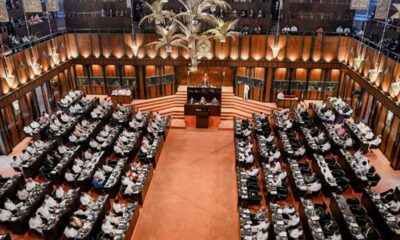
 News4 days ago
News4 days ago
 News4 days ago
News4 days ago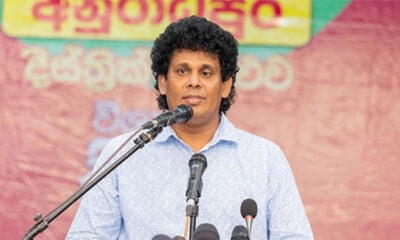
 News3 days ago
News3 days ago
 News4 days ago
News4 days ago
 News1 day ago
News1 day ago
 News4 days ago
News4 days ago

